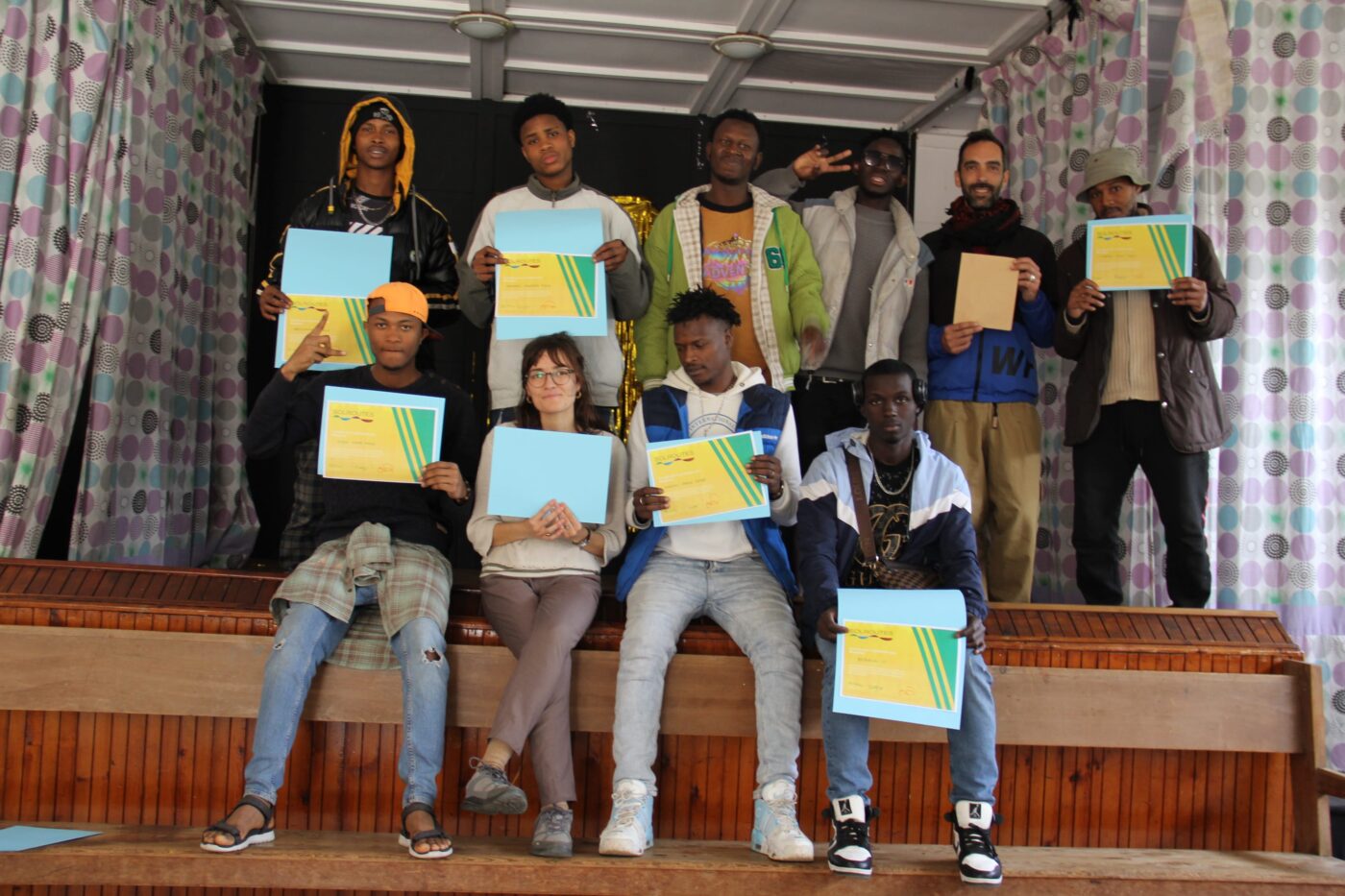Staging Borders: Theater of the Oppressed to portray the Rabat borders
In the framework of the SOLROUTES project, which in the practice of research and knowledge sharing aims to create “collaborative research objects in which participants will imprint their authorship” in order to “visualize the border landscape, explore the changing meanings and representations of Europe across routes, building a connection between acts of making (map/graph, sketch, drawing), storytelling and speech taking,” the techniques of Theatre of the Oppressed emerge as a great vehicle for participatory research, collective reflection and co-production of knowledge.
The opening of the SOLROUTES team’s fieldwork in Morocco tried to observe at the various routes crossing the country – crossroads of movements of transit, arrival, origin, return. Within this carrefour (Alioua 2013), looking for solidarity. Starting from the urban space of Rabat, we looked for solidarity with respect to two concepts: movement and settlement; better said: the right to move and the right to stay. Proposing a collective and participatory reflection on these issues, with the tool of Social Theater, led to the organization of the Generative Narrative Workshop.
The GNW was held in Rabat from February 27 to March 1. It has been part of a research path in the Taqadoum neighborhood of Rabat, where a large population of sub-Saharan communities – settled or waiting “to boze” – is established, with different hopes: some to make it cross the fence, some to be able to regularize there. The nine young people involved in the Workshop have a migration background, they define themselves “adventurers” – having left Guinea Conakry at different times, they came together in Rabat. One of the participants has been here for two and a half months and has a Guinean passport, another has been here for three years and has only a UNHCR registration card. The meeting with Dado, an Italian theater trainer with a knowledge of Morocco and its languages, led to the concreteness of the project: creating a Theater space where the sharing of individual experiences of adventurers could lead to the creation of shared imaginaries, collective narratives. A research tool that goes beyond the classic one-on-one interview, and allows going to the depths.





